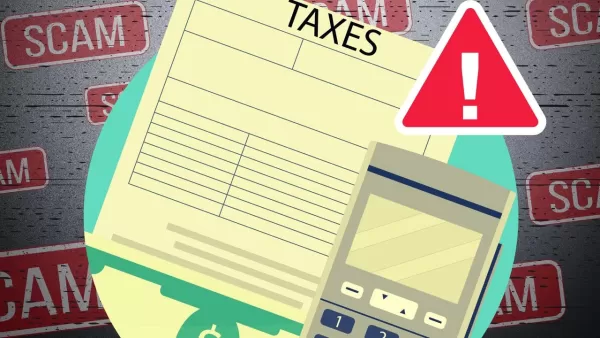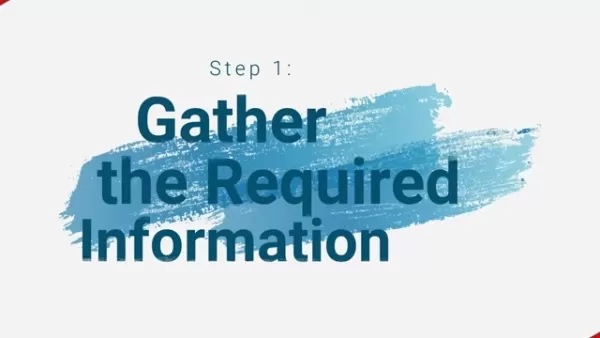Tax Scams Grow Sneakier: 10 Ways to Safeguard Yourself Before It's Too Late

It's that time of year again—tax season. While you're busy gathering your W-2s and receipts, it's crucial to stay vigilant against the wave of tax-related scams that seem to surge right alongside the tax deadlines. A recent report from McAfee, released today, sheds light on the prevalent tax scams and provides valuable tips on how to safeguard yourself.
Also: 5 ways AI can help you do your taxes - and 10 tax tasks you shouldn't trust it with
McAfee's 2025 tax season survey reveals a startling fact: nearly half (48%) of respondents, or someone they know, have been contacted by someone pretending to be from the IRS or a state tax agency. These scammers aren't shy about their methods; they use everything from social media posts to emails, text messages, and phone calls to reach their victims.
Young adults aged 18 to 24 are the most vulnerable, with 40% reporting successful scams within their circle. However, it's the older adults aged 65 to 74 who face the most significant financial hit. Among those scammed, 40% reported losses between $751 and $1,000. Meanwhile, the 45 to 54 age group experienced the highest losses, with 10% losing over $10,000.
Cybercriminals are getting smarter, too, using advanced techniques like deepfake audios to mimic IRS agents and AI-generated phishing emails that look eerily similar to legitimate tax preparation service messages.
Also: What is vishing? Voice phishing is surging - expert tips on how to spot it and stop it
Over half of those surveyed believe these tax-related scam attempts are becoming more realistic, with many expressing concern that AI is making detection even harder.
How Tax Scams Work
McAfee's report details a typical tax scam scenario. You might receive a text or email that urgently claims your tax refund was rejected or that you owe back taxes. These messages often look authentic, complete with a link to click or a number to call. Once you engage, the scammer may request your Social Security number, bank account details, or credit card information under the guise of helping you. Falling for this puts your money and identity at risk.
Also: Got a suspicious E-ZPass text? It's a trap - how to spot the scam
Based on the survey, scammers employ a variety of familiar tactics:
- Fake IRS messages - Almost half of those polled by McAfee have received messages from someone posing as an IRS official.
- Impersonating tax services - One-third of respondents reported being targeted by scammers pretending to be from TurboTax, H&R Block, or another tax provider.
- Baiting victims with fake refunds - Over a third of those surveyed received suspicious messages promising tax refunds with malicious links.
- Cryptocurrency scams - Men are three times more likely than women to fall for phony cryptocurrency tax payment schemes, according to the survey.
How to Protect Yourself from Tax Scams
To shield yourself from these tax-related scams, McAfee offers the following 10 tips:
1. File Early Before Cybercriminals Swoop In
The earlier you file your taxes, the less time scammers have to file fraudulent returns using your identity.
2. Monitor Your Credit Reports
Regularly check your credit reports for any unusual activity, such as unauthorized accounts or significant changes in your credit score. Consider using security software and services that monitor your personal details on the dark web and alert you to suspicious activities.
3. Watch Out for Phishing Attacks
Phishing is a common tactic in tax scams. Be cautious of emails or texts asking for personal or financial information. Always verify the sender directly. Remember, the IRS will never contact you via email, text, or social media to request personal information.
4. Beware of Spoofed Websites
Scammers often create fake tax preparation websites that mimic legitimate ones. Type the address of your tax prep site directly into your browser rather than clicking on links from emails or ads. If unsure, research the domain before entering any sensitive information.
5. Defend Yourself from Scam Messages
Stay alert for text messages that urge you to click a link for a refund or payment. A reliable text scam detector can help block access to suspicious or malicious sites.
Also: Why rebooting your phone daily is your best defense against zero-click attacks
6. Remove Any Personal Data Online
Scammers often harvest phone numbers and email addresses from data broker and people-finder sites. Use a data deletion service to remove your personal information from these sites.
Also: How to delete your personal info from Google Search - quickly and easily
7. Look Into Identity Theft Protection
An identity theft protection service offers personal and financial monitoring and can assist if your identity is compromised.
8. Ignore Messages Asking for Urgent Payment
Any message claiming to be from the IRS seeking payment is a scam. The IRS does not contact individuals via text, email, or social media to request payments.
9. Head Directly to a Reliable Source
For tax-related questions or concerns, visit the IRS website or your state tax agency directly. Avoid clicking on links in emails or messages, as they might lead to fraudulent sites.
10. Consider Using AI-Enabled Security Tools
These programs leverage AI to detect scam calls and texts before you become a victim.
Related article
 Master Emerald Kaizo Nuzlocke: Ultimate Survival & Strategy Guide
Emerald Kaizo stands as one of the most formidable Pokémon ROM hacks ever conceived. While attempting a Nuzlocke run exponentially increases the challenge, victory remains achievable through meticulous planning and strategic execution. This definitiv
Master Emerald Kaizo Nuzlocke: Ultimate Survival & Strategy Guide
Emerald Kaizo stands as one of the most formidable Pokémon ROM hacks ever conceived. While attempting a Nuzlocke run exponentially increases the challenge, victory remains achievable through meticulous planning and strategic execution. This definitiv
 AI-Powered Cover Letters: Expert Guide for Journal Submissions
In today's competitive academic publishing environment, crafting an effective cover letter can make the crucial difference in your manuscript's acceptance. Discover how AI-powered tools like ChatGPT can streamline this essential task, helping you cre
AI-Powered Cover Letters: Expert Guide for Journal Submissions
In today's competitive academic publishing environment, crafting an effective cover letter can make the crucial difference in your manuscript's acceptance. Discover how AI-powered tools like ChatGPT can streamline this essential task, helping you cre
 US to Sanction Foreign Officials Over Social Media Regulations
US Takes Stand Against Global Digital Content Regulations
The State Department issued a sharp diplomatic rebuke this week targeting European digital governance policies, signaling escalating tensions over control of online platforms. Secretary Marco
Comments (7)
0/200
US to Sanction Foreign Officials Over Social Media Regulations
US Takes Stand Against Global Digital Content Regulations
The State Department issued a sharp diplomatic rebuke this week targeting European digital governance policies, signaling escalating tensions over control of online platforms. Secretary Marco
Comments (7)
0/200
![AndrewRamirez]() AndrewRamirez
AndrewRamirez
 October 1, 2025 at 12:30:50 PM EDT
October 1, 2025 at 12:30:50 PM EDT
Ça devient vraiment n'importe quoi ces arnaques fiscales ! 😤 L'année dernière j'ai failli me faire avoir par un faux appel du 'service des impôts'. Maintenant je vérifie trois fois avant de donner la moindre info. Merci pour ces conseils pratiques !


 0
0
![ArthurYoung]() ArthurYoung
ArthurYoung
 August 24, 2025 at 3:01:19 AM EDT
August 24, 2025 at 3:01:19 AM EDT
Tax scams are getting wild! 😱 That McAfee report really opened my eyes—didn’t know scammers could be this sneaky. Gotta double-check those emails before clicking anything!


 0
0
![LarryMartin]() LarryMartin
LarryMartin
 April 19, 2025 at 10:23:37 AM EDT
April 19, 2025 at 10:23:37 AM EDT
세금 납부 시즌에 Tax Scams Grow Sneakier는 정말 도움이 됩니다! 사기를 피하기 위한 실용적인 팁이 가득합니다. 몇 가지 제안을 사용해 보니 훨씬 안전하게 느껴졌어요. 다만, 새로운 사기에 대응하기 위해 더 자주 업데이트되었으면 좋겠어요! 🕵️♂️


 0
0
![RobertMartin]() RobertMartin
RobertMartin
 April 19, 2025 at 12:57:47 AM EDT
April 19, 2025 at 12:57:47 AM EDT
税金詐欺がますます巧妙になる時期に、Tax Scams Grow Sneakierはとても役立ちます!詐欺を避けるための実用的アドバイスが満載です。いくつかの提案を試して、ずっと安全に感じました。ただ、新しい詐欺に対応するために、もっと頻繁に更新してほしいですね!🕵️♂️


 0
0
![JoseJackson]() JoseJackson
JoseJackson
 April 18, 2025 at 8:18:12 PM EDT
April 18, 2025 at 8:18:12 PM EDT
Tax Scams Grow Sneakier is super helpful during tax season! It's packed with practical tips to avoid scams. I used a few of their suggestions and felt much safer. Just wish it was updated more frequently to keep up with new scams! 🕵️♂️


 0
0
![ChristopherAllen]() ChristopherAllen
ChristopherAllen
 April 18, 2025 at 6:36:55 PM EDT
April 18, 2025 at 6:36:55 PM EDT
Tax Scams Grow Sneakier es súper útil durante la temporada de impuestos! Está lleno de consejos prácticos para evitar estafas. Utilicé algunas de sus sugerencias y me sentí mucho más seguro. Solo desearía que se actualizara más frecuentemente para seguir el ritmo de las nuevas estafas! 🕵️♂️


 0
0

It's that time of year again—tax season. While you're busy gathering your W-2s and receipts, it's crucial to stay vigilant against the wave of tax-related scams that seem to surge right alongside the tax deadlines. A recent report from McAfee, released today, sheds light on the prevalent tax scams and provides valuable tips on how to safeguard yourself.
Also: 5 ways AI can help you do your taxes - and 10 tax tasks you shouldn't trust it with
McAfee's 2025 tax season survey reveals a startling fact: nearly half (48%) of respondents, or someone they know, have been contacted by someone pretending to be from the IRS or a state tax agency. These scammers aren't shy about their methods; they use everything from social media posts to emails, text messages, and phone calls to reach their victims.
Young adults aged 18 to 24 are the most vulnerable, with 40% reporting successful scams within their circle. However, it's the older adults aged 65 to 74 who face the most significant financial hit. Among those scammed, 40% reported losses between $751 and $1,000. Meanwhile, the 45 to 54 age group experienced the highest losses, with 10% losing over $10,000.
Cybercriminals are getting smarter, too, using advanced techniques like deepfake audios to mimic IRS agents and AI-generated phishing emails that look eerily similar to legitimate tax preparation service messages.
Also: What is vishing? Voice phishing is surging - expert tips on how to spot it and stop it
Over half of those surveyed believe these tax-related scam attempts are becoming more realistic, with many expressing concern that AI is making detection even harder.
How Tax Scams Work
McAfee's report details a typical tax scam scenario. You might receive a text or email that urgently claims your tax refund was rejected or that you owe back taxes. These messages often look authentic, complete with a link to click or a number to call. Once you engage, the scammer may request your Social Security number, bank account details, or credit card information under the guise of helping you. Falling for this puts your money and identity at risk.
Also: Got a suspicious E-ZPass text? It's a trap - how to spot the scam
Based on the survey, scammers employ a variety of familiar tactics:
- Fake IRS messages - Almost half of those polled by McAfee have received messages from someone posing as an IRS official.
- Impersonating tax services - One-third of respondents reported being targeted by scammers pretending to be from TurboTax, H&R Block, or another tax provider.
- Baiting victims with fake refunds - Over a third of those surveyed received suspicious messages promising tax refunds with malicious links.
- Cryptocurrency scams - Men are three times more likely than women to fall for phony cryptocurrency tax payment schemes, according to the survey.
How to Protect Yourself from Tax Scams
To shield yourself from these tax-related scams, McAfee offers the following 10 tips:
1. File Early Before Cybercriminals Swoop In
The earlier you file your taxes, the less time scammers have to file fraudulent returns using your identity.
2. Monitor Your Credit Reports
Regularly check your credit reports for any unusual activity, such as unauthorized accounts or significant changes in your credit score. Consider using security software and services that monitor your personal details on the dark web and alert you to suspicious activities.
3. Watch Out for Phishing Attacks
Phishing is a common tactic in tax scams. Be cautious of emails or texts asking for personal or financial information. Always verify the sender directly. Remember, the IRS will never contact you via email, text, or social media to request personal information.
4. Beware of Spoofed Websites
Scammers often create fake tax preparation websites that mimic legitimate ones. Type the address of your tax prep site directly into your browser rather than clicking on links from emails or ads. If unsure, research the domain before entering any sensitive information.
5. Defend Yourself from Scam Messages
Stay alert for text messages that urge you to click a link for a refund or payment. A reliable text scam detector can help block access to suspicious or malicious sites.
Also: Why rebooting your phone daily is your best defense against zero-click attacks
6. Remove Any Personal Data Online
Scammers often harvest phone numbers and email addresses from data broker and people-finder sites. Use a data deletion service to remove your personal information from these sites.
Also: How to delete your personal info from Google Search - quickly and easily
7. Look Into Identity Theft Protection
An identity theft protection service offers personal and financial monitoring and can assist if your identity is compromised.
8. Ignore Messages Asking for Urgent Payment
Any message claiming to be from the IRS seeking payment is a scam. The IRS does not contact individuals via text, email, or social media to request payments.
9. Head Directly to a Reliable Source
For tax-related questions or concerns, visit the IRS website or your state tax agency directly. Avoid clicking on links in emails or messages, as they might lead to fraudulent sites.
10. Consider Using AI-Enabled Security Tools
These programs leverage AI to detect scam calls and texts before you become a victim.
 Master Emerald Kaizo Nuzlocke: Ultimate Survival & Strategy Guide
Emerald Kaizo stands as one of the most formidable Pokémon ROM hacks ever conceived. While attempting a Nuzlocke run exponentially increases the challenge, victory remains achievable through meticulous planning and strategic execution. This definitiv
Master Emerald Kaizo Nuzlocke: Ultimate Survival & Strategy Guide
Emerald Kaizo stands as one of the most formidable Pokémon ROM hacks ever conceived. While attempting a Nuzlocke run exponentially increases the challenge, victory remains achievable through meticulous planning and strategic execution. This definitiv
 AI-Powered Cover Letters: Expert Guide for Journal Submissions
In today's competitive academic publishing environment, crafting an effective cover letter can make the crucial difference in your manuscript's acceptance. Discover how AI-powered tools like ChatGPT can streamline this essential task, helping you cre
AI-Powered Cover Letters: Expert Guide for Journal Submissions
In today's competitive academic publishing environment, crafting an effective cover letter can make the crucial difference in your manuscript's acceptance. Discover how AI-powered tools like ChatGPT can streamline this essential task, helping you cre
 US to Sanction Foreign Officials Over Social Media Regulations
US Takes Stand Against Global Digital Content Regulations
The State Department issued a sharp diplomatic rebuke this week targeting European digital governance policies, signaling escalating tensions over control of online platforms. Secretary Marco
US to Sanction Foreign Officials Over Social Media Regulations
US Takes Stand Against Global Digital Content Regulations
The State Department issued a sharp diplomatic rebuke this week targeting European digital governance policies, signaling escalating tensions over control of online platforms. Secretary Marco
 October 1, 2025 at 12:30:50 PM EDT
October 1, 2025 at 12:30:50 PM EDT
Ça devient vraiment n'importe quoi ces arnaques fiscales ! 😤 L'année dernière j'ai failli me faire avoir par un faux appel du 'service des impôts'. Maintenant je vérifie trois fois avant de donner la moindre info. Merci pour ces conseils pratiques !


 0
0
 August 24, 2025 at 3:01:19 AM EDT
August 24, 2025 at 3:01:19 AM EDT
Tax scams are getting wild! 😱 That McAfee report really opened my eyes—didn’t know scammers could be this sneaky. Gotta double-check those emails before clicking anything!


 0
0
 April 19, 2025 at 10:23:37 AM EDT
April 19, 2025 at 10:23:37 AM EDT
세금 납부 시즌에 Tax Scams Grow Sneakier는 정말 도움이 됩니다! 사기를 피하기 위한 실용적인 팁이 가득합니다. 몇 가지 제안을 사용해 보니 훨씬 안전하게 느껴졌어요. 다만, 새로운 사기에 대응하기 위해 더 자주 업데이트되었으면 좋겠어요! 🕵️♂️


 0
0
 April 19, 2025 at 12:57:47 AM EDT
April 19, 2025 at 12:57:47 AM EDT
税金詐欺がますます巧妙になる時期に、Tax Scams Grow Sneakierはとても役立ちます!詐欺を避けるための実用的アドバイスが満載です。いくつかの提案を試して、ずっと安全に感じました。ただ、新しい詐欺に対応するために、もっと頻繁に更新してほしいですね!🕵️♂️


 0
0
 April 18, 2025 at 8:18:12 PM EDT
April 18, 2025 at 8:18:12 PM EDT
Tax Scams Grow Sneakier is super helpful during tax season! It's packed with practical tips to avoid scams. I used a few of their suggestions and felt much safer. Just wish it was updated more frequently to keep up with new scams! 🕵️♂️


 0
0
 April 18, 2025 at 6:36:55 PM EDT
April 18, 2025 at 6:36:55 PM EDT
Tax Scams Grow Sneakier es súper útil durante la temporada de impuestos! Está lleno de consejos prácticos para evitar estafas. Utilicé algunas de sus sugerencias y me sentí mucho más seguro. Solo desearía que se actualizara más frecuentemente para seguir el ritmo de las nuevas estafas! 🕵️♂️


 0
0





























